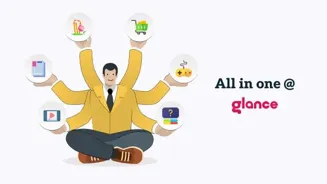Unraveling the Influence of Social Media on Society: Insights & Revelations. Dive deeper into its impact and implications
Social media, a ubiquitous part of modern life, has woven itself into the very fabric
of our society. From connecting with loved ones across continents to staying updated on current events, its influence is undeniable. But what exactly is the impact of this digital behemoth on our society?
Numerous studies have delved into this very question, offering insights into the multifaceted ways social media is shaping our world. Let's take a look at what these studies reveal.
Social media connects people globally, fosters community, supports activism
One of the most significant impacts of social media is its ability to connect people. Geographical boundaries have become less relevant as individuals can easily communicate and interact with friends, family, and even strangers across the globe.
This interconnectedness has fostered a sense of community, particularly for those who may feel isolated or marginalized in their offline lives.
Support groups, online forums, and various social media platforms provide spaces for individuals to share experiences, offer advice, and build relationships based on shared interests or circumstances.
Furthermore, social media has facilitated the organization of social movements and political activism. People can quickly mobilize and coordinate efforts to raise awareness about important issues, advocate for change, and hold those in power accountable.
The Arab Spring, for example, demonstrated the power of social media to facilitate collective action and challenge authoritarian regimes.
Social media revolutionizes news dissemination but poses challenges with misinformation
Social media acts as a powerful tool for information dissemination. News, updates, and announcements can spread rapidly through platforms like Twitter and Facebook, reaching a vast audience in a matter of seconds.
This real-time information flow has revolutionized the way we consume news, allowing individuals to stay informed about current events as they unfold. However, this rapid dissemination of information also comes with its own set of challenges.
The spread of misinformation and fake news has become a major concern, as false or misleading information can quickly go viral, influencing public opinion and potentially causing harm.
Studies have shown that people are more likely to believe information they see on social media, even if it is not from a credible source. This highlights the importance of critical thinking and media literacy skills in navigating the digital landscape.
Social media's impact on businesses and job market
Social media has undeniably transformed the way businesses operate. It provides companies with a direct line of communication to their customers, allowing them to engage with their target audience, build brand loyalty, and gather valuable feedback.
Through social media marketing, businesses can promote their products and services, reach new customers, and drive sales. Social media has also leveled the playing field for small businesses, allowing them to compete with larger corporations by leveraging targeted advertising and engaging content.
Moreover, social media has created new job opportunities in areas such as social media management, content creation, and digital marketing. These roles require a diverse skillset, including creativity, communication, and analytical abilities.
The rise of the influencer culture has also created new avenues for individuals to monetize their social media presence by partnering with brands and promoting products to their followers. This has led to the emergence of a new economy based on online influence and audience engagement.
Social media impacts mental health negatively
Social media has presented impacts that can be understood to be on the individual's mental well-being. Studies have linked excessive social media use to increased rates of anxiety, depression, and low self-esteem.
The constant exposure to curated and often unrealistic portrayals of others' lives can lead to feelings of inadequacy and social comparison.
Individuals may feel pressured to present a perfect image of themselves online, leading to a disconnection between their online persona and their actual experiences. Cyberbullying is another pressing concern, as social media provides a platform for harassment, threats, and online abuse.
Victims of cyberbullying can experience significant emotional distress and psychological harm, leading to increased rates of depression, anxiety, and even suicidal ideation.
It's important to remember that social media does not reflect reality and that people often present an idealized version of themselves online. Cultivating self-awareness and practicing mindful social media use can help mitigate the negative impacts on mental well-being.
Social media impacts personal relationships, balance online and offline interactions
Social media has altered the structure of personal relationships. While it facilitates staying connected with friends and family, it can also lead to a decline in face-to-face interactions and a weakening of social bonds.
Spending excessive time online can detract from real-life relationships, leading to feelings of isolation and loneliness. The rise of online dating has also transformed the way people form romantic relationships.
While online dating platforms can provide opportunities to meet new people, they can also be associated with superficial connections and unrealistic expectations.
Studies have shown that online daters may be more likely to prioritize physical appearance and superficial traits over deeper compatibility factors. It is vital to maintain a balance between online and offline interactions to cultivate meaningful and fulfilling relationships.
Social media impact: complex benefits and challenges in society
In conclusion, the impact of social media on society is complex and multifaceted. It has revolutionized the way we connect, communicate, and consume information. While it offers numerous benefits, it also presents challenges related to misinformation, mental well-being, and personal relationships.
As social media continues to evolve, it is essential to develop critical thinking skills, practice responsible online behavior, and cultivate a healthy balance between our digital and offline lives.
By understanding the impact of social media, we can harness its power for good while mitigating its potential risks.
AI Generated Content. Glance/InMobi shall have no liability for the content













